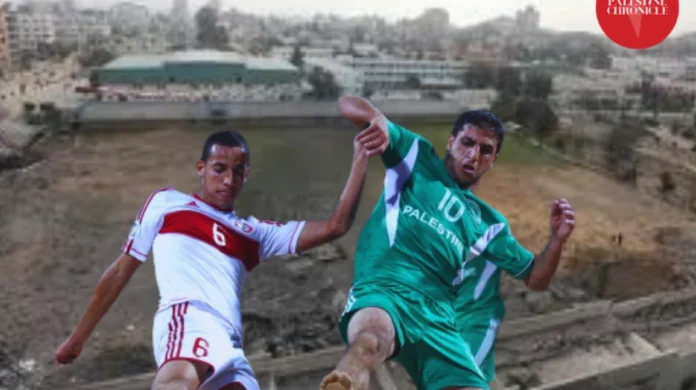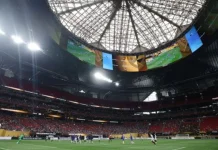The global football community is witnessing a mounting crisis at the intersection of sport and politics, as FIFA faces renewed scrutiny over its protracted handling of complaints against the Israel Football Association (IFA). The Palestinian Football Association (PFA), supported by human rights organizations and a growing chorus of critics, accuses FIFA of “politically motivated stalling” and selective rule enforcement, especially in light of the devastating toll of the Israel-Gaza conflict on Palestinian football infrastructure and personnel. This analysis explores the facts, reactions, and broader implications of FIFA’s delays, drawing on the latest statistics, official statements, and expert commentary.
The Core of the Dispute
The PFA’s Claims and FIFA Statutes
At the heart of the controversy are allegations that the IFA has violated multiple FIFA statutes by:
- Including clubs based in Israeli settlements in the occupied West Bank within its national league system.
- Failing to prevent or address systemic discrimination against Palestinian players.
- Being complicit, through its members, in violations of humanitarian law in Gaza, including the destruction of football infrastructure and the deaths of players.
FIFA statutes explicitly forbid member associations from organizing matches in another association’s territory without consent, and enshrine principles of neutrality, non-discrimination, and respect for human rights. The PFA contends that the IFA’s actions, particularly the integration of settlement clubs, constitute a breach of these rules and amount to implicit recognition of the illegal occupation under international law.
FIFA’s Investigations and Delays
Despite the gravity of the allegations, FIFA has repeatedly delayed substantive action. At its 75th annual congress in Paraguay in May 2025, FIFA Secretary General Mattias Grafström confirmed that two internal committees are still reviewing the case, seeking further expert input—especially on territorial issues. These investigations, initiated in October 2024, focus on:
- Whether the participation of settlement clubs violates FIFA statutes.
- Allegations of discrimination by the IFA against Palestinian players and teams.
No clear timeline for a verdict has been provided, frustrating Palestinian officials and their supporters, who have been seeking action for more than 15 years.
The Human Toll:
Devastation of Palestinian Football
The ongoing conflict has had a catastrophic impact on Palestinian football:
- Deaths: According to the PFA, at least 231 registered football players have been killed since October 2023, including 65 children and 165 youth players. Earlier reports cited at least 92 non-professional players killed.
- Infrastructure: The Palestine Stadium, Beit Hanoun Municipal Stadium, Gaza Sports Club Stadium, and Al Hilal Sporting Club Stadium have all suffered extensive damage from Israeli airstrikes. In total, 42 sports facilities in Gaza and seven in the West Bank have been destroyed.
- Displacement and Suspension: Palestinian leagues have been suspended, and the national team has been forced to play World Cup qualifiers abroad due to the destruction of home facilities and ongoing security risks.
A group of UN-appointed human rights experts identified at least eight football clubs operating in Israeli settlements in the occupied West Bank, a practice they argue is in “stark violation of international law” and FIFA’s own statutes. Critics say FIFA’s inaction effectively legitimizes the occupation and undermines the principles of the global football community.
PFA Vice President Susan Shalabi has been a leading voice in demanding accountability. At the FIFA Congress in May 2025, she delivered a powerful nine-minute speech:
“The problems we face in football are visible, undeniable, yet constantly ignored. Let’s not wait another year. We need to act now… All we are asking for is a clear update on the status of the matter and an exact date in which the investigation will be concluded.”
Her remarks, which received spontaneous applause, underscored the sense of urgency and frustration within the Palestinian football community.
FIFA Secretary General Mattias Grafström responded by emphasizing the complexity of the issue and the need for additional time and expertise:
“The committees are working diligently to conclude what is clearly a highly complex topic.”
FIFA President Gianni Infantino, in an official statement, reiterated the organization’s commitment to due diligence and peace:
“The FIFA Council has implemented due diligence on this very sensitive matter and, based on a thorough assessment, we have followed the advice of the independent experts… We urge all parties to restore peace to the region with immediate effect.”
FairSquare, a leading human rights group, submitted a detailed report to FIFA, arguing that there are “multiple obvious grounds” for suspending or expelling the IFA, including:
- Holding matches in occupied Palestinian territory.
- Systematic racial discrimination.
- Political interference.
- The killing of Palestinian players and destruction of facilities—much of which predates the current escalation.
FairSquare co-director Nick McGeehan stated:
“Israel’s actions in Gaza have resulted in extraordinary devastation… FIFA’s selective enforcement of its rules is indefensible.”
Comparisons to Other FIFA Actions
Critics, including Palestinian officials and international observers, have highlighted FIFA’s rapid response to other geopolitical crises—most notably, its swift suspension of Russian teams following the invasion of Ukraine in 2022. In that case, FIFA acted within three days, whereas the investigation into the IFA has dragged on for over a year.
Why the Delay?
FIFA’s reluctance to act decisively is rooted in the highly politicized nature of the Israeli-Palestinian conflict. Decisions regarding settlement clubs and allegations of discrimination are not merely technical or procedural—they have significant diplomatic and geopolitical ramifications. FIFA’s leadership has cited the need for independent, expert-driven processes, but critics argue that this has become a pretext for inaction.
Double Standards and the Integrity of Football
The perception of double standards is fueling anger and disillusionment among Palestinians and their supporters. As Susan Shalabi noted, “the problems Palestinians have in soccer are visible, undeniable, but sadly not addressed”. Human rights groups argue that FIFA’s credibility as a neutral arbiter is at stake, and that its statutes are being selectively enforced based on political considerations.
The Role of International Law
The presence of settlement clubs in Israeli national competitions is widely viewed as a violation of international law, specifically the Fourth Geneva Convention, which prohibits the transfer of civilian populations into occupied territory. By allowing these clubs to participate, critics say, FIFA is complicit in normalizing the occupation.
Demands for Action
The PFA and its allies are demanding:
- A clear, public timeline for the conclusion of FIFA’s investigations.
- Immediate enforcement of existing statutes regarding settlement clubs and discrimination.
- Sanctions against the IFA, including possible suspension or expulsion from FIFA competitions.
As of May 2025, FIFA has not provided a definitive deadline or published any findings from its internal committees. The organization maintains that it is committed to a fair and thorough process, but the lack of transparency and urgency has only intensified scrutiny.
FIFA’s handling of the complaints against the Israeli FA is a litmus test for the organization’s commitment to its own principles and the universality of its statutes. The facts are stark: hundreds of Palestinian footballers killed, dozens of sports facilities destroyed, and a national football community on the brink of collapse. Yet, after years of advocacy and repeated submissions, the PFA’s calls for justice remain unanswered.
The longer FIFA delays, the more it risks undermining its legitimacy and the trust of the global football community. As the world watches, the question is no longer whether the IFA has breached FIFA’s statutes, but whether FIFA itself will uphold the values it claims to represent—or allow politics to override the rules of the game













